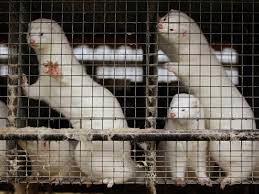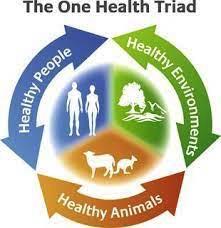 The USDA Animal and Plant Health Inspection Service has awarded 36 grants totaling $56 million to study the epidemiology of SARS-CoV-2 virus in domestic and exotic mammals in the U.S. The initiative is consistent with the One Health concept that links infectious disease among animals, humans and the environment. Recipients of grants include the USDA National Institute of Food and Agriculture, the National Science Foundation, Ecology and Evolution of Infectious Diseases program and from surveillance of imported animals entering the U.S. through the Los Angeles International Airport.
The USDA Animal and Plant Health Inspection Service has awarded 36 grants totaling $56 million to study the epidemiology of SARS-CoV-2 virus in domestic and exotic mammals in the U.S. The initiative is consistent with the One Health concept that links infectious disease among animals, humans and the environment. Recipients of grants include the USDA National Institute of Food and Agriculture, the National Science Foundation, Ecology and Evolution of Infectious Diseases program and from surveillance of imported animals entering the U.S. through the Los Angeles International Airport.
Surveys and diagnostic procedures have demonstrated that SARS-CoV-2 can infect a wide range of mammals including farmed mink and foxes, rodents, skunks and more recently, white-tailed deer. Studies conducted since 2022 have shown that in all probability SARS-CoV-2 carried by hunters and caretakers of farmed deer resulted in infection. Subsequently the virus underwent mutation to allow animal-to-animal infection. This strain is now potentially transmitted back to humans.
resulted in infection. Subsequently the virus underwent mutation to allow animal-to-animal infection. This strain is now potentially transmitted back to humans.
The University of Missouri is currently sampling rats in and around the New York City sewage system demonstrating a 17 percent exposure to SARS-CoV-2.